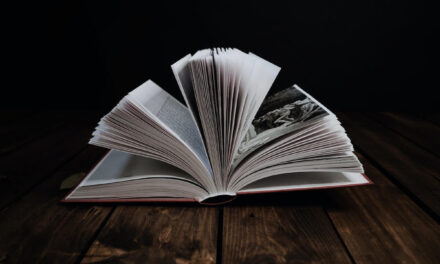Supervised by: Matteo Baccaglini B.A. (Oxon). Matteo graduated from the University of Oxford with a Bachelor of Arts degree in Philosophy, Politics, and Economics in 2021, and is presently undertaking a Master of Science degree in Political Science and Political Economy at the London School of Economics. He has been a tutor and mentor with Oxford Scholastica Academy since 2021.
ABSTRACT
This paper discusses the classification of governments as “rogue states”, which has been variously used by the United States and Western governments since 1979. Surveying the application of rogue statehood on North Korea, Cuba, and Afghanistan, we argue that the current approach to dealing with rogue states – led by sanctions – harms civilian populations more than it effectively changes the undesirable behaviour of rogue states.
Keywords: rogue states, sanctions
INTRODUCTION AND DEFINITIONS
Since 1979, the United States and Western governments have labelled various governments as ‘rogue states’ (Beck & Gerschewski, 2009). Contemporary rogue states include North Korea, Cuba, Afghanistan, Iran, Nicaragua, Sudan, Syria, and Venezuela.
Revisiting the rogue state literature, we survey the first three of these rogue states. We argue that sanctions – the measure most often levied against rogue states – disproportionately harm civilian populations living in rogue states, and often realise limited success in changing the behaviour of rogue states, which are remarkably resilient at weathering external pressure. Furthermore, we argue that rogue statehood is arbitrarily applied, with poorer, less powerful countries typically more likely to be designated as rogue states.
To begin our investigation of rogue states and their effect on international relations, let us begin by defining the term. In his State of the Union address in 1999, Bill Clinton, then President of the United States, stated: ‘As we work for peace, we must also meet threats to our nation’s security, including increased dangers from outlaw nations and terrorism’ (Clinton, 1999). Such “outlaw nations”, or “rogue states”, implied states that possibly had nuclear weapons or state-organised crime; more recent characterisations include the mistreatment of citizens.
Another keyword that will recur in this paper is “sanctions”; these refer to measures that a state or supranational institution can impose on another state, with the purpose of changing, limiting, or deterring their undesirable behaviour – that is, behaviour disapproved by the international community (Government of the Netherlands, n.d.). Sanctions include arms embargoes and travel and visa embargos, for example for those recently enacted against Russia. One of the most destructive types of sanctions is embargos on a country’s imports and exports. As we will see in the case of North Korea’s textile industry, such embargos can target certain industries, harming the state by reducing its revenue. Sanctions may also be diplomatic in nature: they may decrease or recall another state’s ambassadors, or postpone important international gatherings. Some sanctions are stronger than others: sports sanctions, which bar the athletes from the sanctioned nation from taking part in international competitions, are a less extreme sanction often used to show a country is being isolated for their actions. Targeted or “smart” sanctions impose travel restrictions and asset freeze orders on people, businesses, or other organisations, such as terrorist groups, associated with a state’s undesirable activities. Finally, military sanctions are last-resort measures that include arms embargoes or targeted military strikes, often leading to continued conflict.
NORTH KOREA: HOW ROGUE STATEHOOD EXACERBATES HUMANITARIAN CONCERNS
In a 1994 essay in ‘Foreign Affairs’, Anthony Lake, Assistant to the President of the United States for National Security Affairs, labelled North Korea, Iran, Cuba, Libya, and Iraq as ‘“backlash” states that ‘not only choose to remain outside the [international] family but also assault its basic values’ (Lake, 1994). More recently, in September 2017, former US President Donald J. Trump renewed the epithet, calling North Korea ‘a great threat and embarrassment to China’ (Trump, 2017). In the same month, the United Nations Security Council unanimously approved new sanctions against North Korea over its development of a hydrogen bomb. The sanctions banned textile exports and prohibited any country from authorising new permits for North Korean workers, two key sources of hard currency for the regime. Additionally, the sanctions prohibited North Korea from importing any natural gas liquids and condensates, and capped its imports of crude oil and refined petroleum products (United Nations, 2017).
Such sanctions were designed to hurt North Korea’s economy, particularly the ban on textile exports. North Korea was estimated to have exported $752 million in textiles in 2016, its second-largest category of exports (Korea Trade-Investment Promotion Agency, 2017). In a country that was already facing chronic food insecurity, lack of access to basic health services, declining access to safe water and sanitation, and a high vulnerability to natural disasters, wiping one of the country’s largest sectors – and the jobs it sustains – would inevitably exacerbate the concern for humanitarian welfare in North Korea. The effects were expected to be particularly pronounced on women (Fifield, 2017). Even sanctions imposed on companies and individuals can feasibly trickle down to affect a larger population.
Because they hinder a country’s economic development, it is therefore reasonable to ask whether sanctions transform countries from “rogue states” rather than simply create or amplify humanitarian crises. In particular, the political leaders of rogue states, which are typically not democratic, may be more indifferent to the sufferings of their people than democratic leaders would be. Furthermore, sanctions may encourage states to develop economic autarky, by which they are more self-sufficient and therefore less dependent on international trade, thereby also reducing the effectiveness of further sanctions on their economy. Rhodesia provides a good example: in the decade from 1965, following sanctions after it declared independence unilaterally from the United Kingdom, the landlocked country transformed its economy from a near-total dependence on imported manufactured goods in exchange for raw materials to a high degree of self-sufficiency.
The case of North Korea, and the sanctions imposed in 2017, thus illustrates how rogue statehood – or, more particularly, the current measures used to influence the behaviour of rogue states – can harm civilian populations, with limited effect on the behaviour of rogue states.
CUBA: THE ARBITRARY APPLICATION OF ROGUE STATEHOOD
Since the 1959 Cuban Revolution and its subsequent collaboration with the USSR, Cuba has been treated as a rogue state by the United States. The post-revolution relationship between Cuba and the United States raises important questions about the ways in which rogue states are disproportionately challenged relative to larger, more influential state actors, who may similarly assault the basic values of the international community but are spared the full force of its indignation given their geopolitical power. Being generally smaller and poorer, rogue states may be more liable to punishment by the international community than other states that fit the definition of rogue states but are not typically considered or treated as such.
In 2020, Cuba estimated that the United States’ trade embargo against it, effected after the 1959 revolution, has amounted to $144 billion in damages (Reuters, 2020). As with North Korea, these sanctions inevitably hurt Cuba’s civilian population. The sanctions provide a permanent depression on the economy, and result in institutional failure, resource depletion, unemployment, and price inflation. Cuban economists attribute the recent decline of the peso to a four-year crisis exacerbated by a lack of convertible foreign currency and declining production (Acosta & Frank, 2023). As most Cubans receive their pay in the peso, which is relatively weak, this reduces the purchasing power of their already-low earnings. As the peso falls, the local price of many commodities imported in dollars also soars.
Such debilitating sanctions, however, were not applied to larger countries, such as the USSR and Russia, its successor state. Therefore, the United States’ application of sanctions illustrates its bias towards countries at different stages of their economic development with different geopolitical significances, something we also observe with the application of sanctions in Iraq, Libya, Syria, and Afghanistan. Larger countries, such as China and Russia, that arguably fit definitions of rogue states are not treated in the same way. As with North Korea, those who suffer most are not the government, but the civilian population.
In Rogue States: The Rule of Force in World Affairs (2000), Noam Chomsky criticises the concept of the rogue state. He considers that the United States, after the end of the Cold War, took upon itself the responsibility to protect the world, but to protect whom? In his view, the United States needed to create new enemies, furnished readily by the label of “rogue state”. The concept therefore serves two purposes: a propaganda purpose to classify enemies; and an informative purpose to denote states that do not consider themselves bound by international norms. Thus, a rogue state ‘is not only a criminal state, but one that defies the orders of the powerful, who are excluded, of course’ (Chomsky, 2000). In agreement with Chomsky, the arbitrary application of rogue statehood – as we have discussed in relation to Cuba – suggests that the label is often little more than an expedient to denote governments hostile to the interests of the world’s dominant superpower(s).
AFGHANISTAN: ISOLATION FROM THE INTERNATIONAL COMMUNITY
During the Taliban’s administration of Afghanistan from the mid-1990s to 2001, the country was labelled a rogue state. Principally, it was designated a rogue state because of its human rights violations and its harbouring of terrorist organisations, particularly al-Qaeda, whose orchestrated attacks included the 1998 United States embassy bombings.
The portrayal of Afghanistan as a renegade nation had far-reaching consequences that extended well beyond its borders. The political seclusion, global censure, severed relations, and financial restrictions imposed on the country had a profound impact on the lives of its people and their wellbeing. The lack of access to vital resources, coupled with the isolation from the international community, hindered progress and development in the region. The situation was especially dire for those who were already vulnerable, such as women and children, who were often left without adequate food, shelter, or medical care. Despite these challenges, the people of Afghanistan showed remarkable resilience in the face of adversity. With continued support and assistance from the global community, there is reason to believe that Afghanistan can build a brighter future for all its citizens.
The Taliban’s policies left an indelible mark on Afghan society, with women and minorities bearing the brunt of systemic oppression and restrictions on education, employment, and personal freedoms. Public executions and strict dress codes generated an environment of fear and subjugation, leading to psychological and emotional distress. Economic sanctions and international isolation worsened access to healthcare, education, and basic amenities, contributing to heightened mortality rates and diminished quality of life. The Taliban’s rule disrupted traditional social structures, leaving lasting scars on the civilian population.
The events that took place in Afghanistan in the early 2000s greatly impacted the country’s international relations and global security concerns. Due to their harbouring of al-Qaeda, Afghanistan became a focus of international discourse and was no longer solely seen as a domestic issue. The US-led military intervention in 2001 hoped to dismantle terrorist networks and ensure global security. The aftermath of the intervention has had significant consequences for Afghanistan, with ongoing conflict and instability affecting the country today. The situation is complex and multifaceted, with no easy solutions. Despite the challenges, there is hope that Afghanistan can one day emerge as a stable, prosperous nation that is fully integrated into the international community.
HOW ROGUE STATES WEATHER EXTERNAL PRESSURE AS WEAK AND STRONG ACTORS
Rogue states experience significant external pressure from other countries because of the label and stigma associated with rogue statehood. This makes it very difficult for them to grow in terms of trade, transportation, cultural interaction, and investments. Most importantly, it makes it harder for rogue states to survive.
Governments of rogue states frequently face isolation from other countries because of their pursuit of weapons, support for terrorism, and disregard for international law. For instance, North Korea, which has a long history of violating humanitarian laws, has been isolated for many years. Many states, including the United States, Japan, and Canada have severed all diplomatic connections with North Korea and froze its assets, limiting its access to funds for any nuclear or missile programs. As we have already discussed, North Korea has therefore faced several challenges, such as limited access to international trade, stagnation in economic development, limited access to international media, and challenges in meeting basic humanitarian needs.
Leading governments and supranational organisations such as the United States, Russia, and the European Union frequently impose economic sanctions on rogue states to curtail terrorism and nuclear activity, as well as to advance democracy and human rights. Due to the limitations on economic activity, these sanctions strain rogue states. Iran was subject to economic sanctions between 2010 and 2015 in an effort to halt its nuclear programme. Iran’s primary source of income came from oil exports, which were significantly impacted by the sanctions. Its limited access to global financial systems hampered the government’s ability to pay for goods and services, and the national currency experienced a major devaluation. As a result, unemployment reached an all-time high. Yet although the sanctions caused several problems, due to all of the repercussions of being a rogue state, Iran went from being an extreme rogue to being embraced by three major members of the United Nations Security Council: China, Russia, and France.
World leaders also often threaten military action against rogue states. In 2013, the Syrian government was found to be using chemical weapons against civilians (Arms Control Association, 2021). Barack Obama, then President of the United States, publicly stated that this was unacceptable and that his administration was considering military action. The Syrian government was pressurised to sign an agreement to disassemble its chemical weapons as it knew its forces could not match the US’s military capabilities. Although this was successful in ending the chemical weapon usage on citizens, Syria went through various problems such as diplomatic isolation from other countries, fear among population of a potential war, and political turmoil from the high international pressure. Thus, although threatening military action may be successful in clearing out the original problem, there are chances that it adds even more problems to the already-suffering rogue state.
As a result of the external pressure rogue states go through, they struggle to survive. Yet certain measures help rogue states to persist. Some of these measures include pre-existing powerful alliances to support them during trying times, unified support from their citizens, having access to key resources to make their state powerful against other countries, and a strong establishment that will maintain power and control in the chaos.
In brief, although a lot of these methods are effective in pressuring the rogue states to stop their undesirable behaviour, they cause other problems which render the already-difficult survival of rogue states much more difficult.
Finally, summarising the discussion in Beck and Gerschewski (2009), one might say that a weak state cannot respond to the challenges of modernity, such as globalisation, climate change, or changes in its labour-market demands. Yet rogue states invite another criterion against which to interpret weak and strong states: how they can mobilise economic and social resources to counter external pressure, particularly in enforcing cooperation from their own societies. In some resource-poor rogue states, such as North Korea, ideational resources can serve as a function equivalent to economic resources: North Korea’s strong state-centred ideology, reinforced by an extensive apparatus of the state, means its state appears to remain unchallenged internally. Similarly, the Iraqi regime was able to continue a policy of internal oppression until its collapse in 2003, despite the erosion of its state capabilities in the 1991 Gulf War. Yet economic rents from commodity exports are not the only source of rentier states: for instance, for decades, foreign aid bolstered the strength of the states of Syria and Cuba (Beck & Gerschewski, 2009).
In summary, rogue states can weather the external pressure they face by drawing on ideational resources when their supply of economic resources is depleted, such as in the face of sanctions. Rogue states can therefore retain a high degree of state capacity.
DEALING WITH ROGUE STATES: SANCTIONS AND THEIR LIMITS
As we have seen, sanctions are one of the most popular ways in which present administrations deal with rogue states. The European Union has levied sanctions more than thirty times in its 30-year history, while the United States has 38 active sanctions programs (Masters, 2019; Office of Foreign Assets Control, n.d.). More recently, since February 2022, the US Treasury alone has implemented more than 2,500 sanctions following Russia’s invasion of Ukraine (US Department of the Treasury, 2023).
How effective are such programs? Surveying recent studies, Coulomb and Matelly (2015) suggest an average success level of 30% for targeted sanctions. Although sanctions are often ineffective on their own, they can ‘shift the context in which the target makes decisions’ when used with other diplomatic tools (O’Toole, 2019). For example, sanctions brought Iran to the negotiating table, and contributed to Mikhail Gorbachev’s determination to ease the USSR’s isolation. In Russia’s invasion of Ukraine, it is hoped that by worsening the health of the domestic economy, the sanctions can fuel social unrest against the incumbent government.
Yet as we have previously discussed, while sanctions might curb the actions of rogue states, they often result in serious collateral damage that disproportionately affects civilian populations. As Rodríguez (2023) concludes: ‘Regrettably, the populations most often harmed, and in some cases killed, by sanctions are also voiceless in decisions about their adoption.’ Political leaders and policymakers should carefully weigh the potential negative consequences before implementing sanctions, and consider alternative methods that minimise harm to the innocent population while still achieving the desired foreign policy goals. Furthermore, it should be recalled that sanctions can harm the sanctioning country as well as the target. Over 1,000 companies halted operations in Russia following sanctions in the wake of the war in Ukraine (US Embassy in Georgia, 2022).
CONCLUSION
Having surveyed the rogue states of North Korea, Cuba, and Afghanistan, we have argued that sanctions disproportionately harm civilian populations living in rogue states, and rarely change the behaviour of rogue states. Rogue statehood is arbitrarily applied, with poorer, less powerful countries typically more likely to be designated as rogue states. In all, the international community should consider other approaches to dealing with countries that refuse to subscribe to its values and aims.
References
Acosta, N., and Frank, M. (2023). ‘Cubans struggle as peso loses half its value in a year on informal market’, Reuters. Available at: www.reuters.com/world/americas/cubans-struggle-peso-loses-half-its-value-year-informal-market-2023-08-02. (Accessed: 9 September 2023).
Arms Control Association (2021). Timeline of Syrian Chemical Weapons Activity, 2012-2022. Available at: www.armscontrol.org/factsheets/Timeline-of-Syrian-Chemical-Weapons-Activity (Accessed: 9 September 2023).
Beck, M., and Gerschewski, J. (2009) ‘On the Fringes of the International Community: The Making and Survival of “Rogue States”’, Sicherheit und Freiden, 27(2), 84-90.
Chomsky, N. (2000) Rogue States: The Rule of Force in World Affairs. Cambridge, MA: South End Press.
Clinton, W.J. (1999) Address Before a Joint Session of the Congress on the State of the Union. Available from The American Presidency Project: www.presidency.ucsb.edu/documents/address-before-joint-session-the-congress-the-state-the-union-6 (Accessed: 8 September 2023).
Coulomb, F., and Matelly, S. (2015) ‘Bien-fondé et opportunité des sanctions économiques à l’heure de la mondialisation’, Revue internationale et stratégique, 97(1), 101-110. Available at: www.cairn.info/revue-internationale-et-strategique-2015-1-page-101.htm (Accessed: 9 September 2023).
Department of Homeland Security (n.d.). Weapons of Mass Destruction. Available at: www.dhs.gov/topics/weapons-mass-destruction (Accessed: 9 September 2023).
Fifield, A. (2017). ‘Ban on North Korean clothing will hurt women the most, experts say’, The Washington Post. Available at: www.washingtonpost.com/world/ban-on-north-korean-clothing-exports-will-hurt-women-the-most-experts-say/2017/09/16/2a6ec716-995c-11e7-a527-3573bd073e02_story.html (Accessed: 9 September 2023).
Government of the Netherlands (n.d.). Sanctions. Available at: www.government.nl/topics/international-peace-and-security/compliance-with-international-sanctions (Accessed: 9 September 2023).
Korea Trade-Investment Promotion Agency (2017). 2016 North Korean Foreign Trade Trends. Available at: https://dream.kotra.or.kr/kotranews/cms/news/actionKotraBoardDetail.do?SITE_NO=3&MENU_ID=530&CONTENTS_NO=1&bbsGbn=249&bbsSn=249&pNttSn=160099# (Accessed: 9 September 2023).
Lake, A. (1994). ‘Confronting backlash states’, Foreign Affairs. Available at: www.foreignaffairs.com/articles/iran/1994-03-01/confronting-backlash-states (Accessed: 9 September 2023).
Masters, J. (2019). ‘What are economic sanctions?’, Council on Foreign Relations. Available at: www.cfr.org/backgrounder/what-are-economic-sanctions (Accessed: 9 September 2023).
Office of Foreign Assets Control (n.d.). Sanctions Programs and Country Information. Available at: www.ofac.treasury.gov/sanctions-programs-and-country-information (Accessed: 9 September 2023).
Organisation for the Prohibition of Chemical Weapons (n.d.). History. Available at: www.opcw.org/about-us/history (Accessed: 9 September 2023).
O’Toole, B. (2019). ‘Sanctions are effective – if used correctly’, New Atlanticist. Available at: www.atlanticcouncil.org/blogs/new-atlanticist/sanctions-are-effective-if-used-correctly/ (Accessed: 9 September 2023).
Reuters (2020). ‘Cuba says U.S. trade embargo cost more than $5 billion last year’, Reuters. Available at: www.reuters.com/article/us-cuba-usa-idUSKBN2772L1 (Accessed: 9 September 2023).
Rodríguez, F. (2023). ‘The Human Consequences of Economic Sanctions’, Center for Economic and Policy Research. Available at: www.cepr.net/wp-content/uploads/2023/04/The-Human-Consequences-of-Economic-Sanctions-Rodriguez.pdf (Accessed: 9 September 2023).
Trump, D.J. (2017). Tweet by Donald J. Trump. Available at: www.twitter.com/realDonaldTrump/status/904307898213433344 (Accessed: 9 September 2023).
United Nations (2017). Security Council Imposes Fresh Sanctions on Democratic People’s Republic of Korea, Including Bans on Natural Gas Sales, Work Authorization for Its Nationals. Available at: press.un.org/en/2017/sc12983.doc.htm (Accessed: 9 September 2023).
US Department of the Treasury (2023). Targeting Key Sectors, Evasion Efforts, and Military Supplies, Treasury Expands and Intensifies Sanctions Against Russia. Available at: home.treasury.gov/news/press-releases/jy1296 (Accessed: 9 September 2023).
US Embassy in Georgia (2022). International Sanctions Are Working: Russia Feels Economic Pressure. Available at: ge.usembassy.gov/international-sanctions-are-working-russia-feels-economic-pressure/ (Accessed: 9 September 2023).




